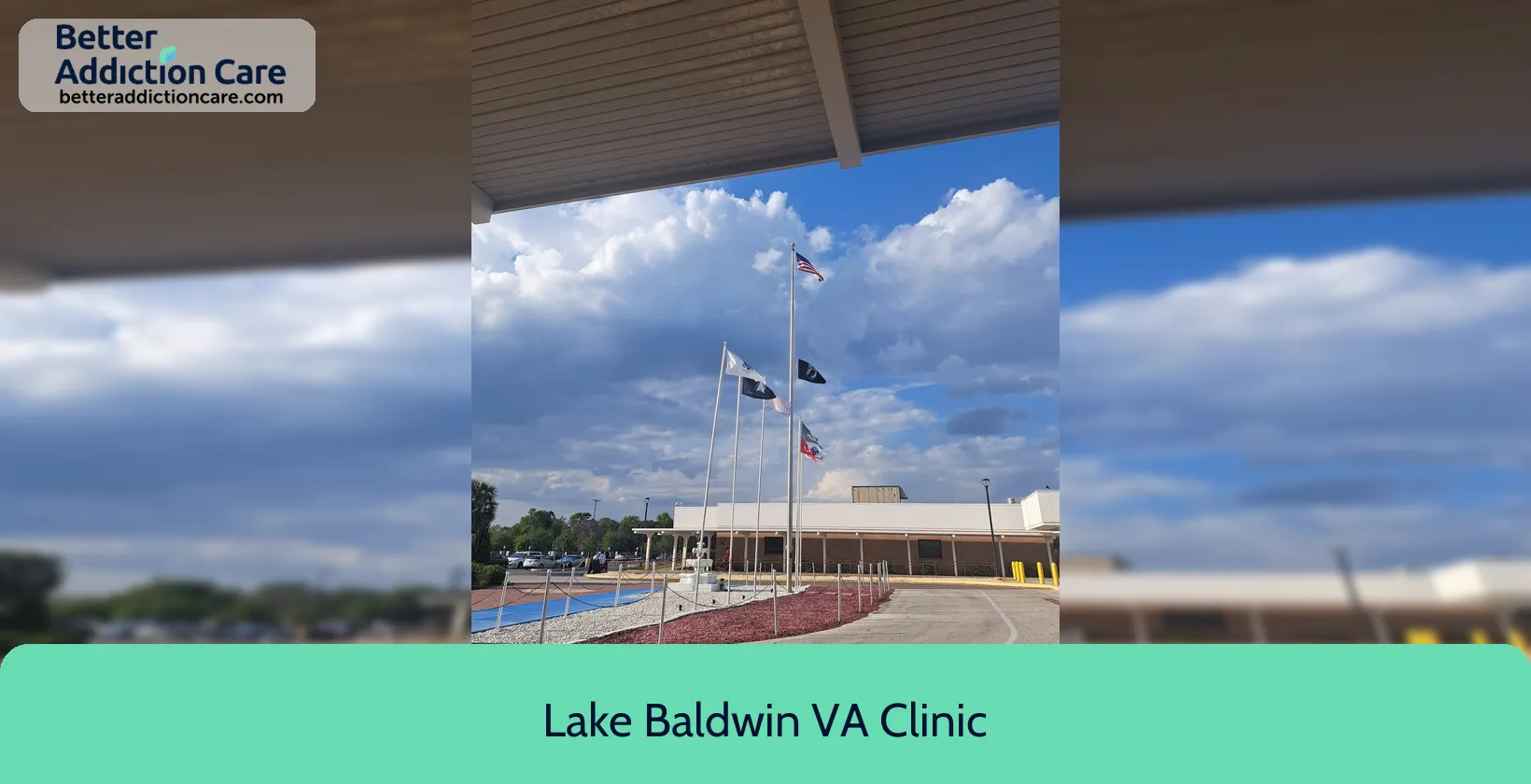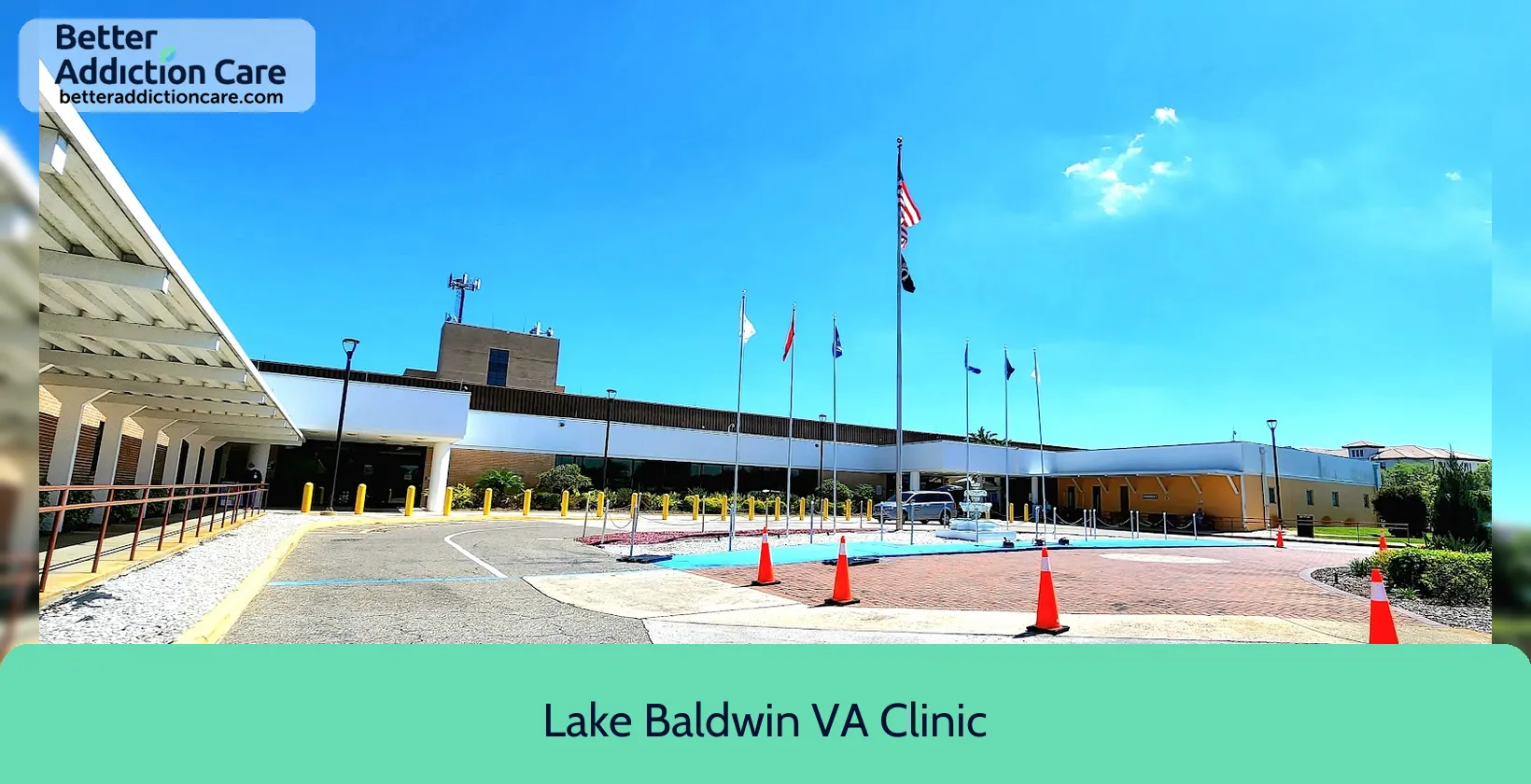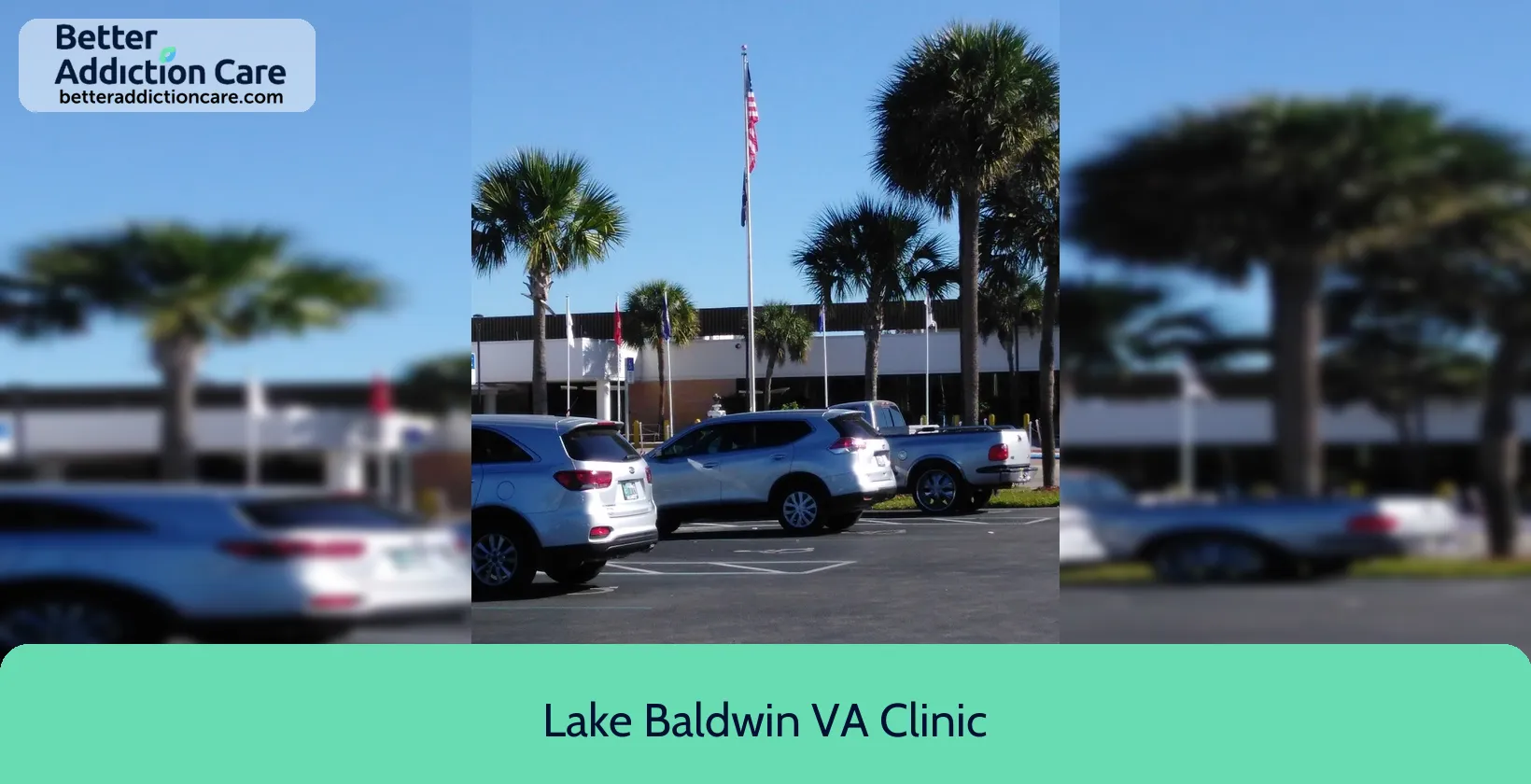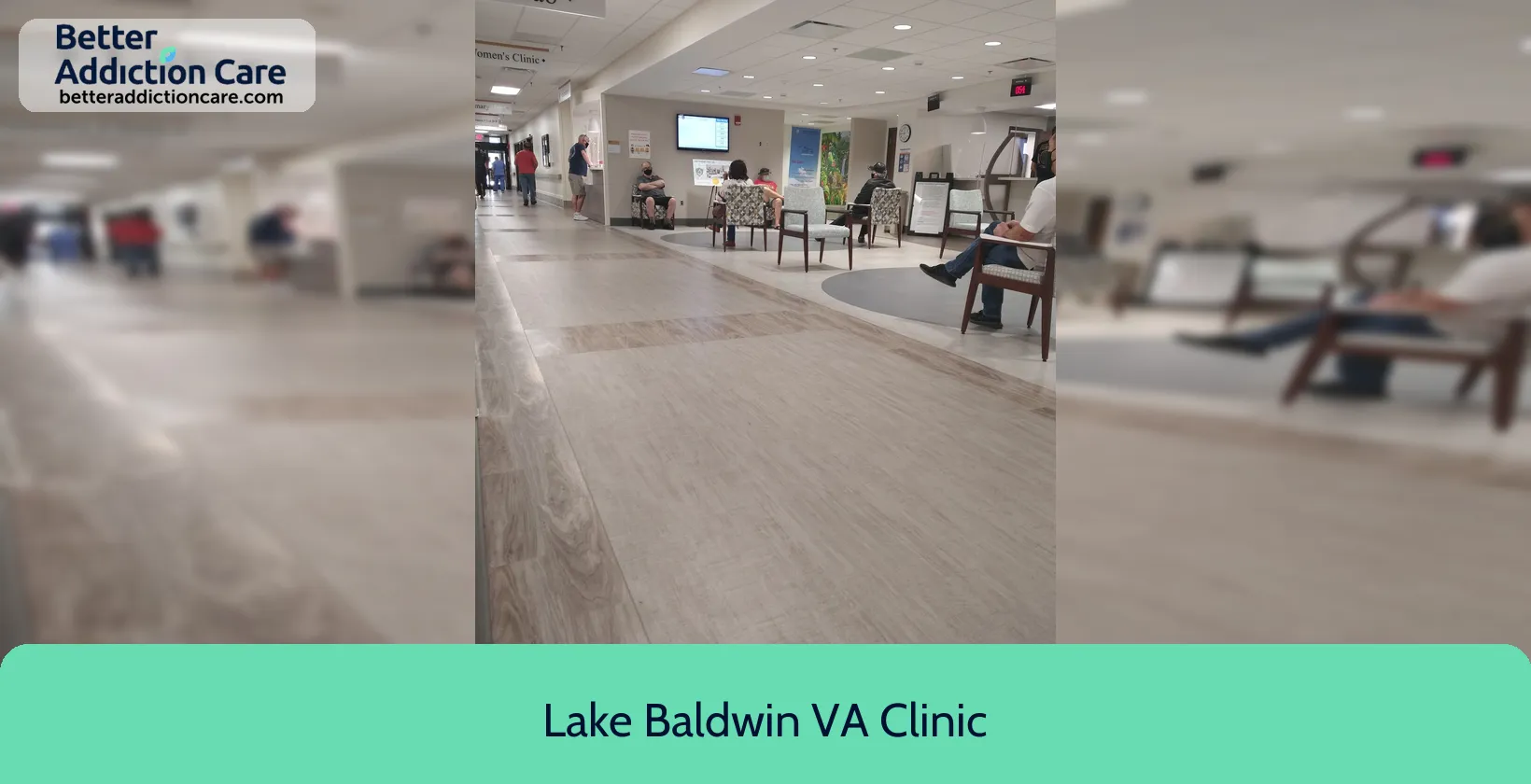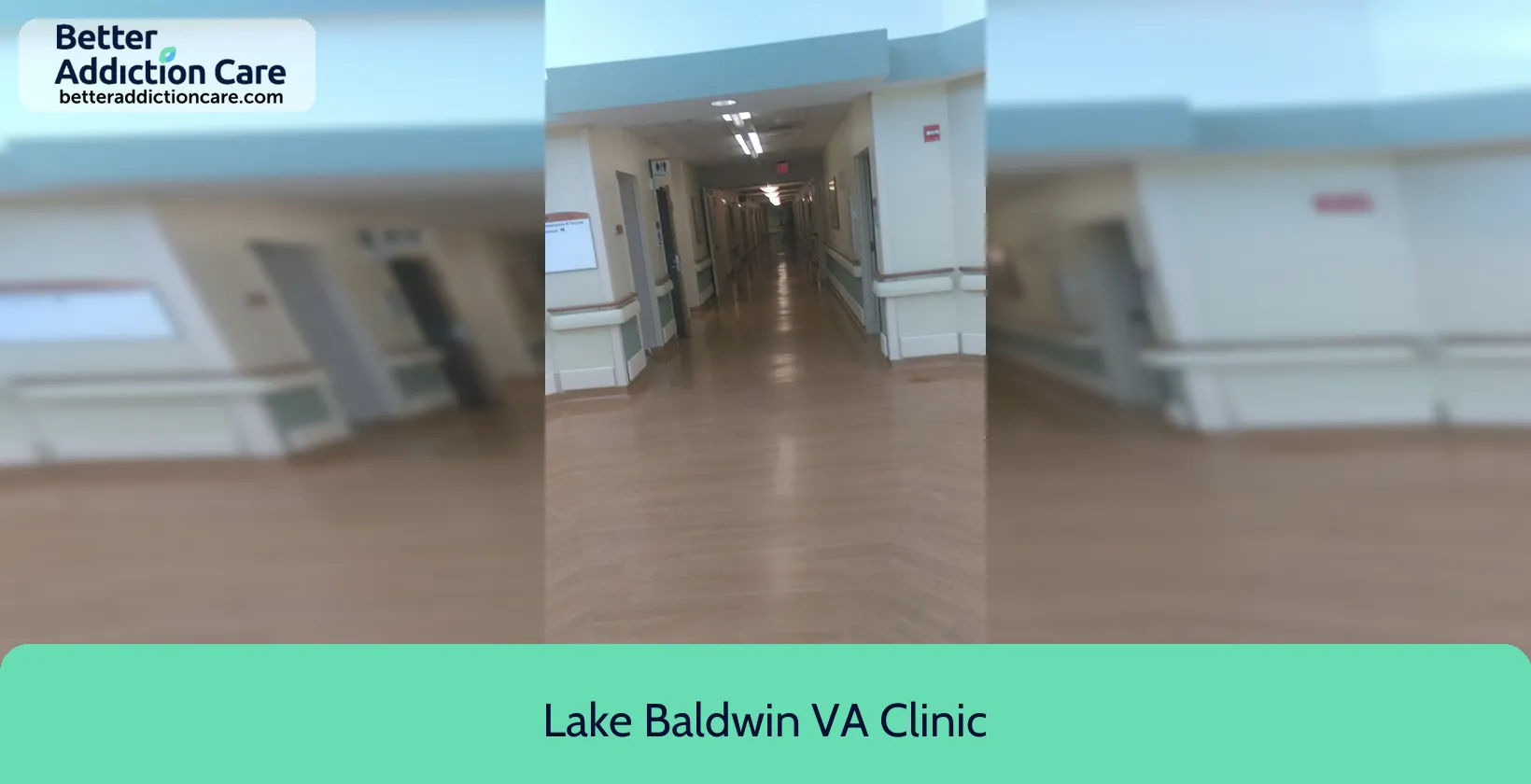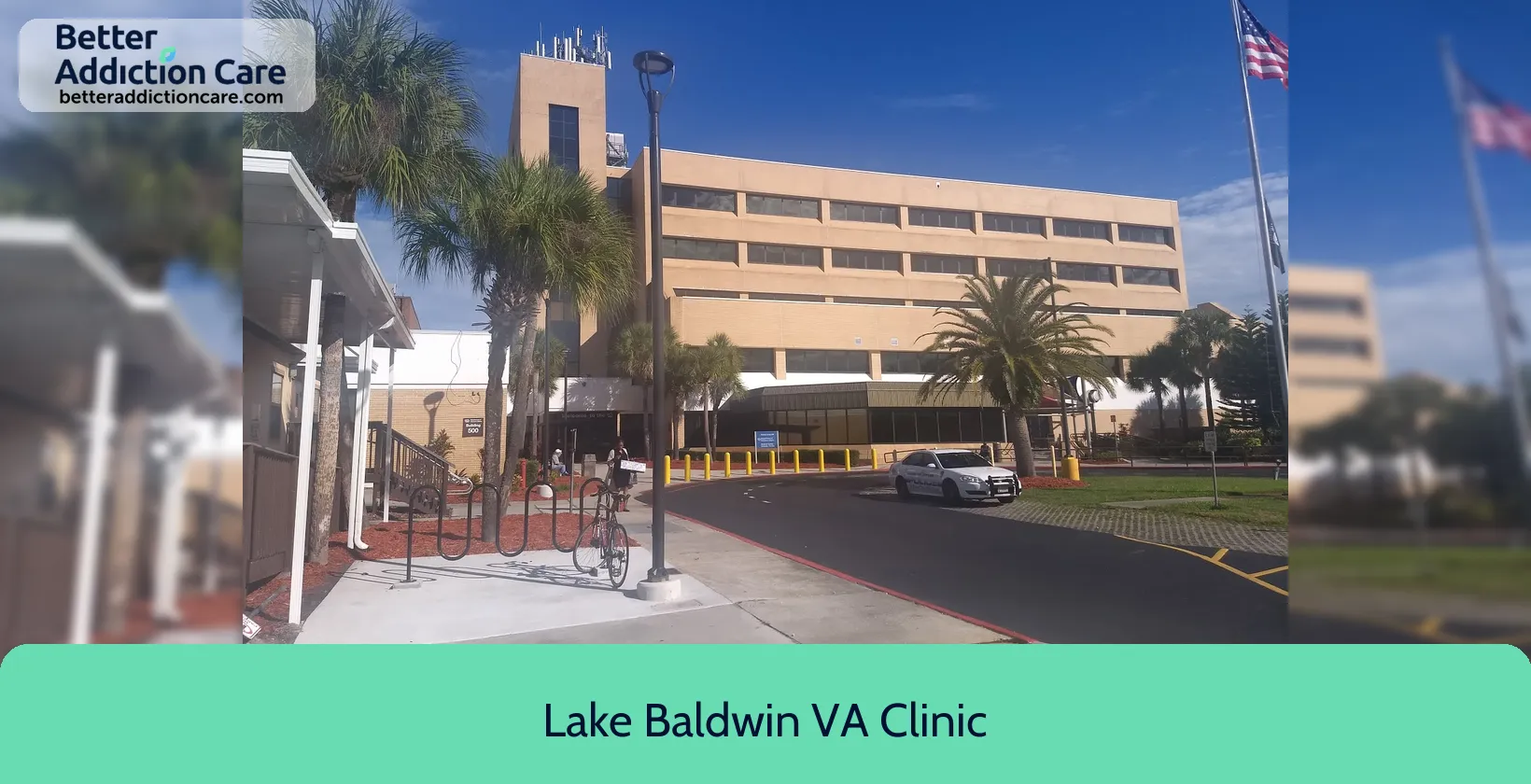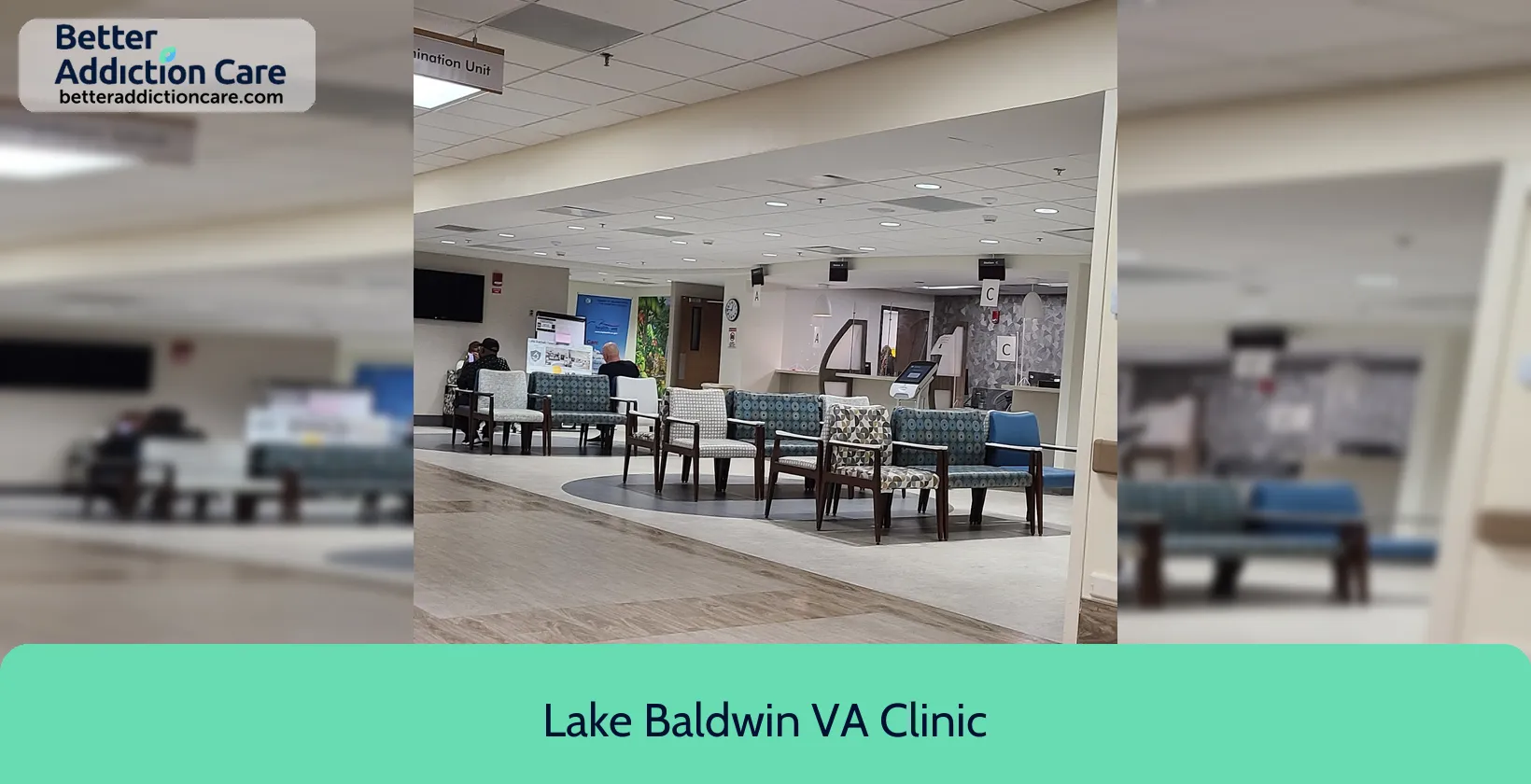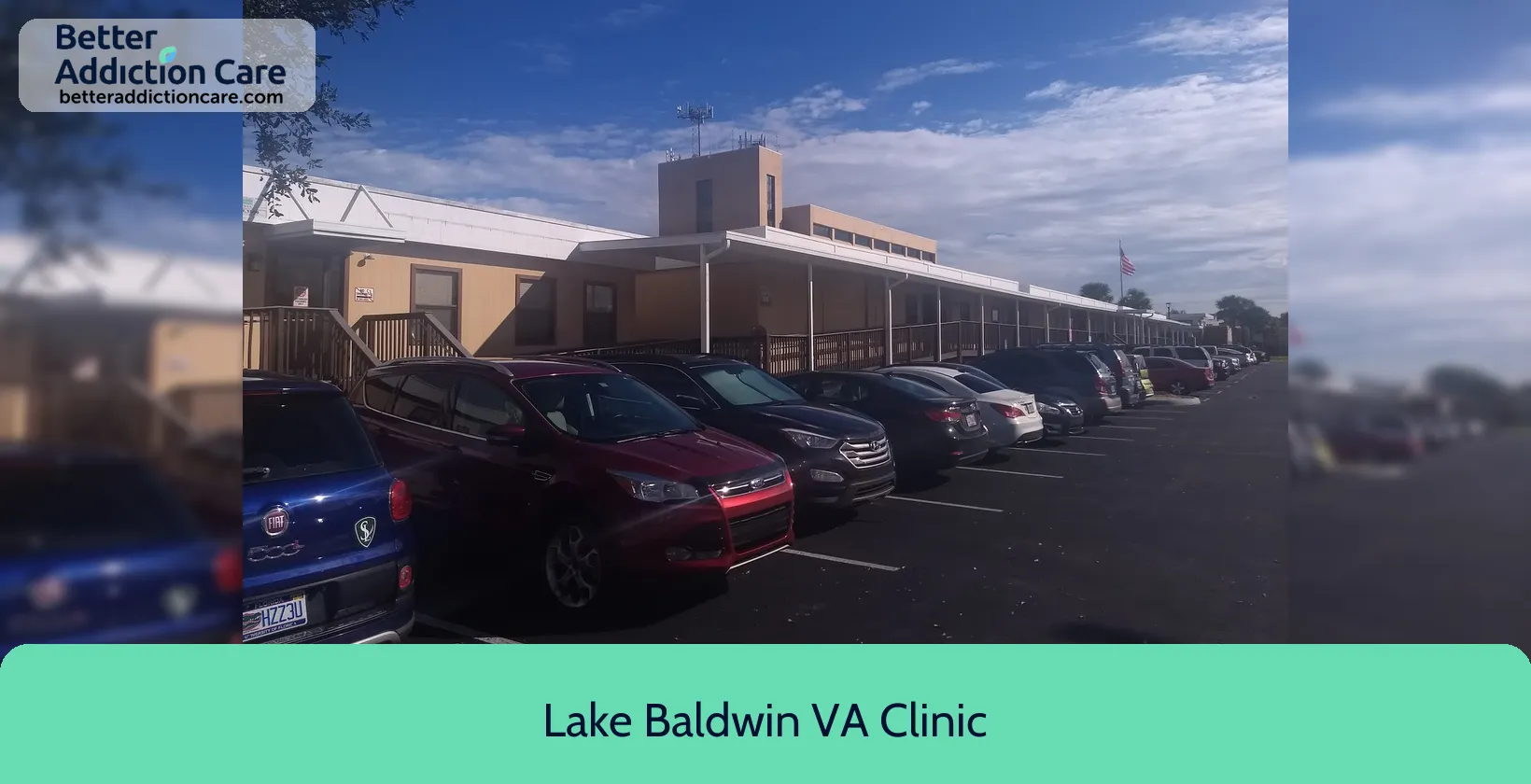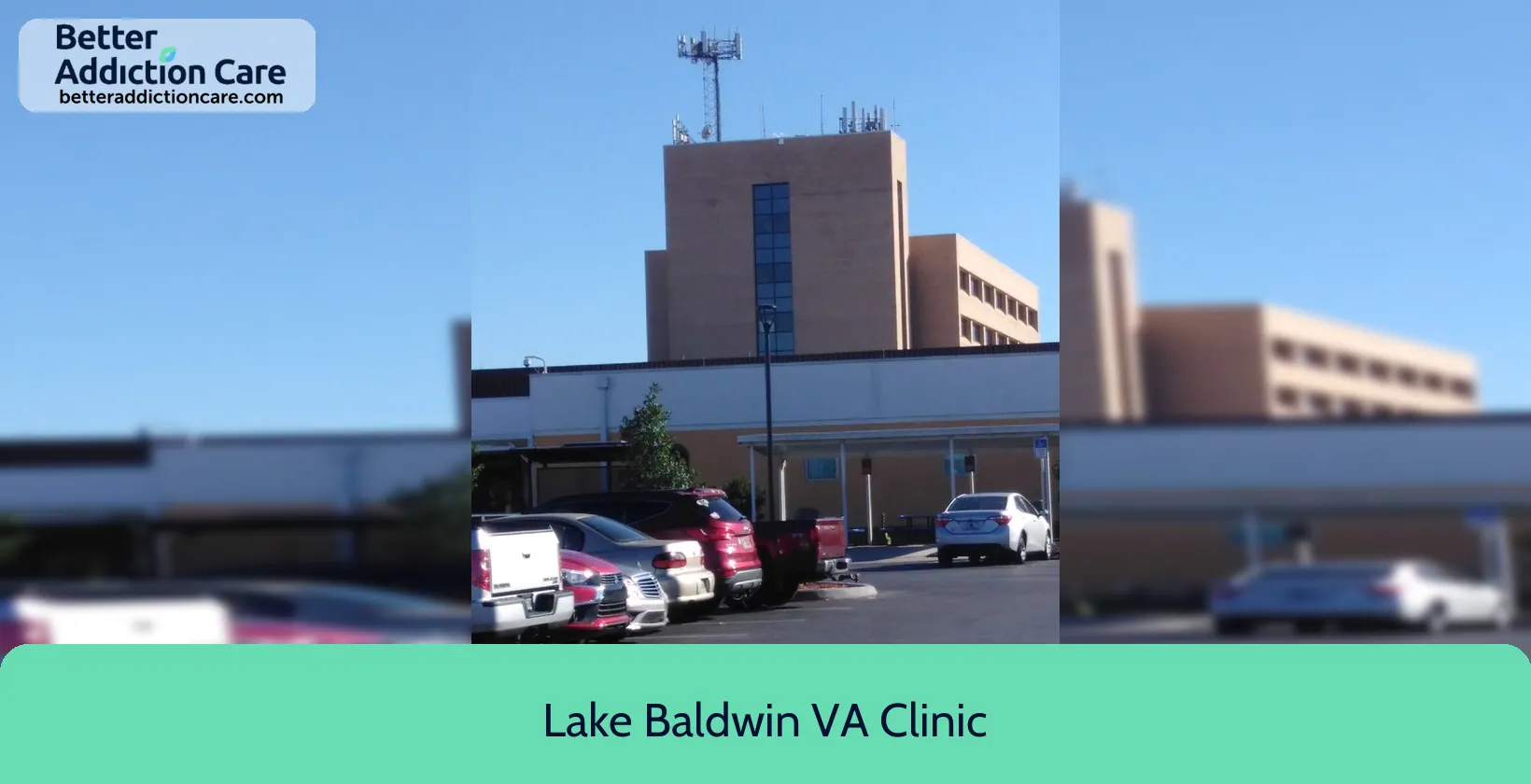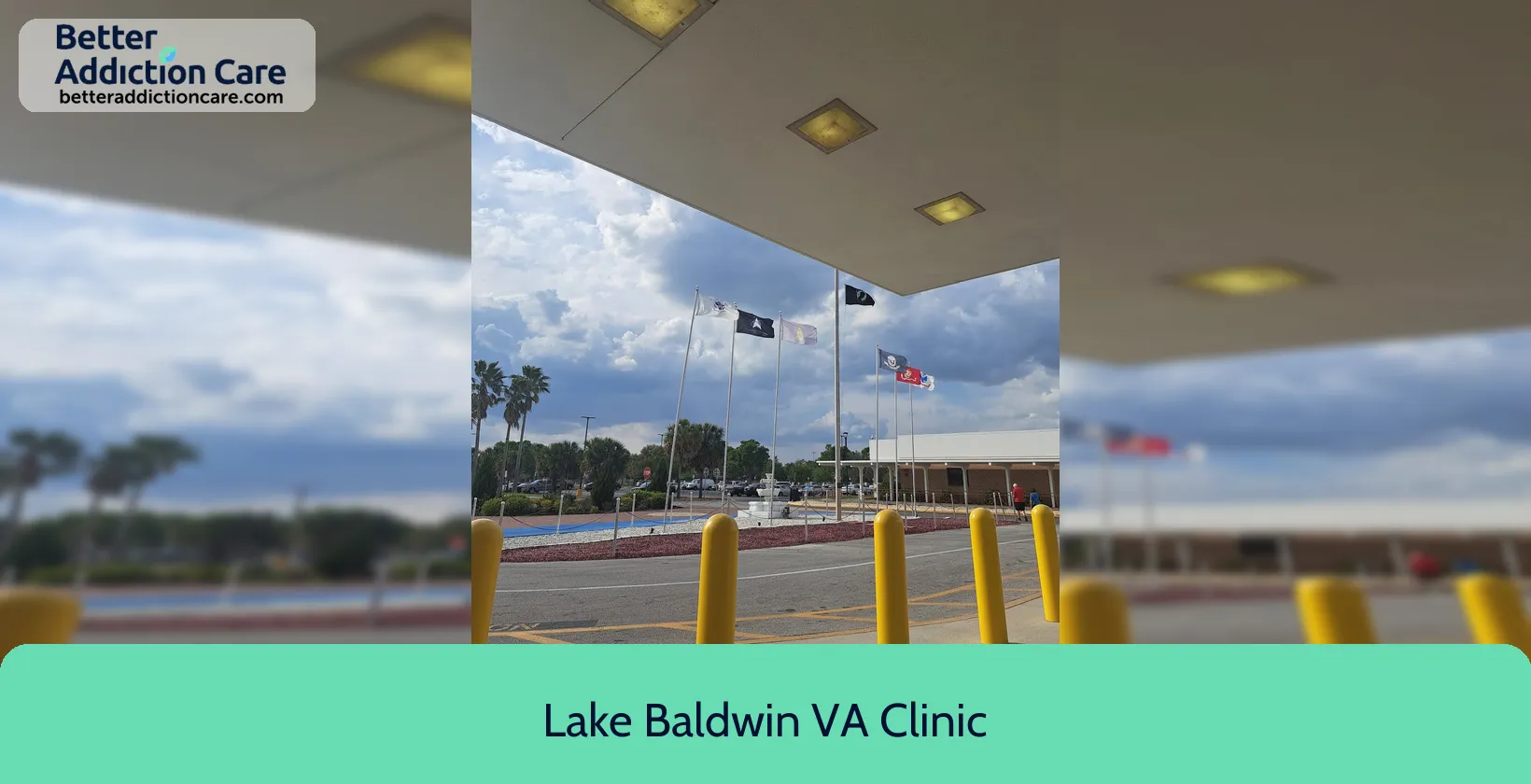Overview
Lake Baldwin VA Clinic is a mental health treatment center for people seeking treatment near Orange County. As part of their treatment modalities for recovery, Lake Baldwin VA Clinic provides cognitive behavioral therapy, telemedicine/telehealth therapy, and substance use disorder counseling during treatment. Lake Baldwin VA Clinic is located in Orlando, Florida, accepting no payment accepted for treatment.
Lake Baldwin VA Clinic at a Glance
Payment Options
- No payment accepted
- Federal, or any government funding for substance use treatment programs
- Private health insurance
- Federal military insurance (e.g., TRICARE)
- U.S. Department of VA funds
Assessments
- Screening for tobacco use
- Comprehensive mental health assessment
- Comprehensive substance use assessment
- Interim services for clients
- Outreach to persons in the community
Age Groups
- Adults
- Seniors
- Young adults
- Seniors or older adults
Ancillary Services
- Integrated primary care services
- Suicide prevention services
- Mental health services
- Social skills development
- Transportation assistance
Highlights About Lake Baldwin VA Clinic
8.05/10
With an overall rating of 8.05/10, this facility has following balanced range of services. Alcohol Rehabilitation: 9.36/10, Drug Rehab and Detox: 7.85/10, Insurance and Payments: 6.67/10, Treatment Options: 8.30/10.-
Alcohol Rehabilitation 9.36
-
Treatment Options 8.30
-
Drug Rehab and Detox 7.85
-
Insurance and Payments 6.67
Accreditations
The Joint Commission:

The Joint Commission accreditation for addiction and behavioral health is a prestigious recognition signifying a facility's commitment to delivering high-quality care and safety for individuals dealing with substance abuse and mental health issues. It involves rigorous evaluations and assessments, ensuring patients receive evidence-based treatment and exceptional care. This accreditation demonstrates a facility's dedication to continuous improvement and ethical practices, building trust among patients and healthcare professionals seeking top-tier addiction and behavioral health services.
Commission on Accreditation of Rehabilitation Facilities (CARF):

CARF accreditation is a prestigious recognition for rehabilitation and human service organizations. It signifies that an organization meets high-quality standards and is committed to providing top-level care. CARF conducts rigorous evaluations to ensure compliance, enhancing an organization's credibility and reassuring clients and funders of exceptional service quality. This accreditation promotes excellence and continual improvement in the rehabilitation and human services field.
Treatment At Lake Baldwin VA Clinic
Treatment Conditions
- Alcoholism
- Mental health treatment
- Substance use treatment
- Co-occurring Disorders
Care Levels
- Hospital inpatient treatment
- Outpatient
- Short-term residential
- Long-term residential
- Outpatient methadone/buprenorphine or naltrexone treatment
Treatment Modalities
- Cognitive behavioral therapy
- Telemedicine/telehealth therapy
- Substance use disorder counseling
- Trauma-related counseling
- Smoking/vaping/tobacco cessation counseling
Ancillary Services
Languages
- Spanish
- Sign language services for the deaf and hard of hearing
Additional Services
- Pharmacotherapies administered during treatment
- Mentoring/peer support
- Drug or alcohol urine screening
Special Programs
- Clients with co-occurring mental and substance use disorders
- Veterans
- Clients who have experienced trauma
- Clients who have experienced sexual abuse
- Clients with co-occurring pain and substance use disorders
Contact Information
Read our Most Recent Article About Drug Addiction
DISCLAIMER: The facility name, logo and brand are the property and registered trademarks of Lake Baldwin VA Clinic, and are being used for identification and informational purposes only. Use of these names, logos and brands shall not imply endorsement. BetterAddictionCare.com is not affiliated with or sponsored by Lake Baldwin VA Clinic.
